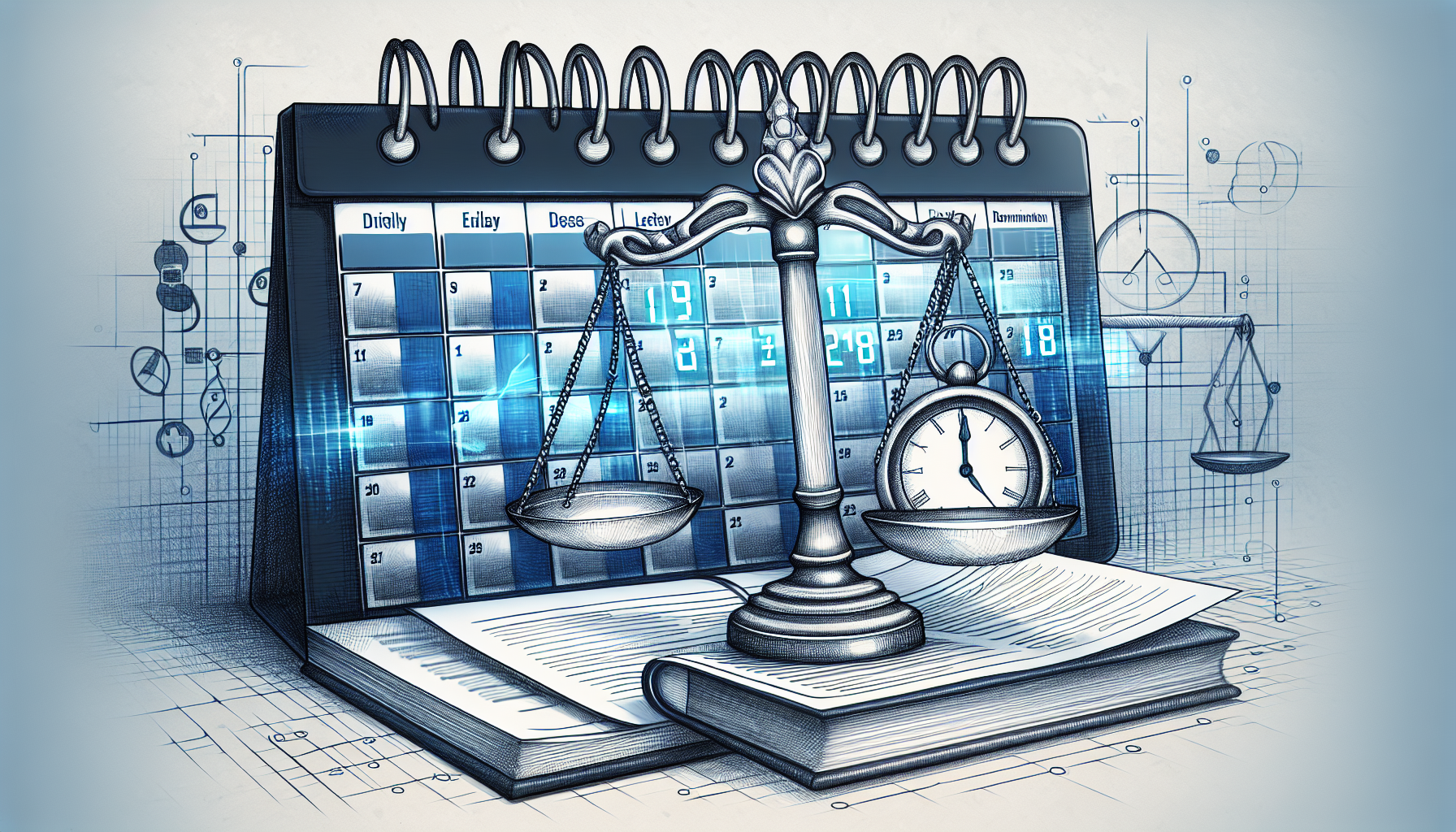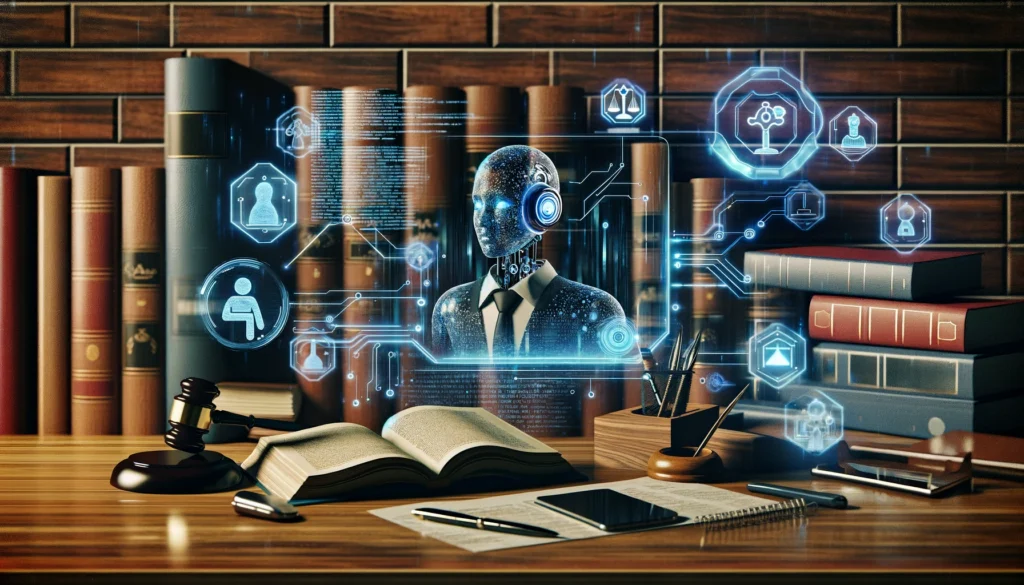
1. Setting the Stage: Why Paralegals Need Innovation Now
The legal landscape is becoming increasingly intricate, with evolving regulations and the need for streamlined processes. Paralegals face the daunting task of managing voluminous paperwork and ensuring meticulous compliance with laws. Efficiency is more critical than ever, especially when handling complex issues like living trusts.
Emerging technologies, specifically artificial intelligence (AI), offer the potential to revolutionize paralegal work. AI tools, such as ChatGPT, can enhance productivity, accuracy, and overall effectiveness. By automating routine tasks and providing sophisticated research capabilities, these tools help paralegals navigate the complexities of their roles with greater ease.
Understanding how to harness this technology is essential for modern legal practice. Let’s delve into the specific ways ChatGPT can be an asset in handling living trusts.
2. ChatGPT Demystified: What Paralegals Need to Know
ChatGPT, powered by the latest in large language models (LLMs), processes natural language inputs to generate coherent responses and valuable insights. Paralegals can use ChatGPT for various tasks, from legal research to drafting documents.
LLMs analyze vast amounts of text data, providing contextual and precise information. For instance, when researching legal precedents or drafting legal documents, ChatGPT can significantly reduce the time spent on these tasks. However, paralegals must be aware of security considerations. Ensuring private and sensitive data remains confidential is paramount, requiring cautious and ethical usage of AI tools.
With a foundational understanding of ChatGPT, we can now explore how to craft powerful prompts to turbocharge legal research.
Also read:
3. Turbocharging Research: Crafting Effective Prompts for Legal Queries
The effectiveness of ChatGPT hinges on the quality of the prompts provided. Analyzing the anatomy of a powerful prompt helps optimize responses from the AI.
The Anatomy of a Powerful Prompt
- Clarity: Ensure the prompt is clear and specific.
- Context: Provide relevant background information within the prompt.
- Direct Questions: Formulate questions that guide the AI to the desired response.
Examples of Prompts for Living Trusts
When querying about living trusts, consider prompts like:
- “Explain the key components of a living trust according to California state law.”
- “List the regulatory requirements for establishing a living trust in New York.”
- “What are the tax implications of a living trust versus a will?”
Refining queries ensures more precise answers. Adding specific details about jurisdictions or laws helps in receiving relevant and accurate information.
With research queries streamlined, we turn to how AI aids in drafting essential documents.
Also read:
4. Document Drafting: Speed and Precision Through AI
ChatGPT excels in generating foundational drafts, accelerating the document creation process without compromising on quality. For living trusts, this capability is invaluable.
Generating Basic Drafts of Living Trust Documents
ChatGPT can draft wills, trust agreements, and more with remarkable speed. Sample prompts include:
- “Draft a living trust agreement for a couple with two children in Texas.”
- “Create a simple will outlining asset distribution for a single individual in New Jersey.”
- “Generate a trust amendment document to update beneficiary details.”
While AI-generated documents are useful, meticulous editing and reviewing are crucial to ensure legal accuracy and compliance. Paralegals must scrutinize these drafts, making necessary adjustments to align with specific legal requirements.
Next, we’ll discuss how AI can help ensure compliance and perform due diligence.
Also read:
5. Due Diligence and Compliance: Ensuring the Legal Integrity of Trusts
Ensuring that living trusts comply with state and federal laws is a critical aspect of paralegal work. ChatGPT can assist in these due diligence tasks by providing comprehensive checks and balances.
Utilizing ChatGPT for Compliance
Paralegals can use ChatGPT to verify that living trust documents adhere to relevant regulations. Example prompts include:
- “Check the compliance of this living trust document with California probate laws.”
- “Identify potential legal risks in this living trust setup for a New York resident.”
- “Outline the federal tax obligations for a living trust established in Florida.”
Prompts for Due Diligence Checks
Conducting thorough due diligence is simplified with prompts such as:
- “Provide a checklist for due diligence when forming a living trust in Illinois.”
- “Highlight recent legal changes affecting living trusts in Massachusetts.”
- “Assess the legal robustness of this living trust agreement in Ohio.”
Leveraging AI ensures that the living trust documents meet all legal standards and criteria, bolstering their validity and effectiveness.
Now, let’s consider how AI can enhance client communications, promoting transparency and efficiency.
Also read:
6. Client Communication: Transparency and Efficiency with AI
Effective communication is at the heart of client relationships. ChatGPT can streamline the process, making it easier for paralegals to draft clear, concise, and informative communications.
Drafting Client Emails
AI assists in creating structured and professional emails. Consider prompts like:
- “Draft an email explaining the benefits of a living trust to a prospective client.”
- “Compose a follow-up email to a client regarding the next steps in setting up their living trust.”
Explaining Legal Terms
ChatGPT helps in breaking down complex legal jargon into understandable terms. Use prompts such as:
- “Explain the concept of a ‘contingent beneficiary’ in simple language for a client.”
- “Summarize the process of amending a living trust for a layperson.”
Maintaining client confidentiality is essential. Paralegals must ensure that AI usage does not compromise sensitive client information.
AI integration extends beyond just ChatGPT. Now, we’ll explore other tools and future prospects in legal AI.
Also read:
7. Smart Tools and Integration: Beyond Just ChatGPT
While ChatGPT is a powerful tool, numerous other AI-driven platforms can complement it, offering a more integrated and efficient workflow for paralegals.
Other AI Tools
- Legal Document Management Systems: Tools like Clio or MyCase streamline document management and client interactions.
- Research Databases: Platforms like LexisNexis or Westlaw integrate AI for enhanced legal research capabilities.
Integration with Existing Software
Integrating ChatGPT with existing paralegal software enhances productivity. For instance, combining Clio with ChatGPT can automate client communication while ensuring comprehensive data management.
Future Prospects
The role of AI in legal work is continually evolving. As these technologies advance, they will further transform paralegal tasks, driving efficiency and accuracy to new heights.
Next, we address the ethical considerations crucial for navigating AI use in legal tasks.
Also read:
8. The Ethical Paralegal: Navigating AI Regulations and Best Practices
Adopting AI tools comes with ethical responsibilities. Paralegals must adhere to regulatory guidelines and best practices to maintain professionalism and legal integrity.
Ethical Considerations
Key ethical considerations include:
- Confidentiality: Safeguard client information when using AI tools.
- Accuracy: Ensure AI outputs are verified for legal accuracy and compliance.
- Transparency: Maintain transparency with clients about AI usage in legal processes.
Regulatory Guidelines
Follow regulatory standards such as those set by the ABA, which provide frameworks for the ethical use of AI in the legal field.
Best Practices
Adopt best practices, including ongoing training on AI tools, regular updates to AI systems, and maintaining a balance between AI and human oversight.
Finally, let’s reflect on the overall journey of integrating AI into paralegal work.
Also read:
9. Conclusion – The Road Ahead: Embracing AI as Your Paralegal Assistant
Incorporating AI tools like ChatGPT offers substantial benefits, from enhancing efficiency to ensuring legal accuracy. Paralegals have much to gain by embracing these advancements, tackling complex legal tasks with greater ease and precision.
As the legal landscape continues to evolve, so too must the tools and techniques paralegals use. With AI’s growing potential, the future promises even greater innovation and efficiency in legal workflows. It’s time to embrace AI as a valuable assistant in the paralegal toolbox.


